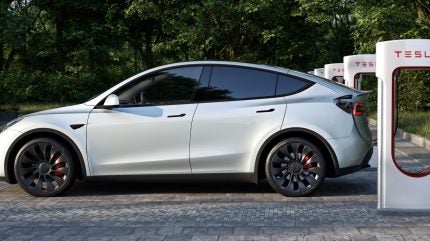
Sales of imported light passenger vehicles in South Korea rose by 6% to 25,263 units in March 2024 from 23,840 units a year earlier, according to the Korea Automobile Importers & Distributors Association (KAIDA).
That followed sharp declines in the first two months of the year, with the country’s highly indebted consumers coming under increasing pressure following the central bank’s sharp interest rate hikes over the last few years from 0.5% to 3.5%.

Discover B2B Marketing That Performs
Combine business intelligence and editorial excellence to reach engaged professionals across 36 leading media platforms.
Import sales this year have also been significantly held back by shipping delays due to the tensions in the Red Sea which also affected some exports from South Korea.
Overall demand for new vehicles in South Korea remained sluggish, however, with domestic sales also declining sharply in the last two months although this also reflected production line stoppages at Hyundai Motor for maintenance and retooling purposes.
First quarter sales of imported light passenger vehicles declined 11% to 54,583 units from 61,684 units a year earlier with the share of German owned brands falling to 64% due to a rebound in sales by US automaker Tesla.
Segment leader BMW outperformed with just a 6% sales decline to 16,968 units year to date (YTD) helped by the recent arrival of the new 5 series sedan and a strong EV line up while Mini sales surged by 34% to 2,209 units.
Volkswagen sales rose 26% to 1,464 following a strong rebound in March but Porsche sales were down 23% at 2,286 units and Audi sales plunged 84% to 1,100 units.
Mercedes-Benz reported a 28% fall in Q1 sales to 10,720 units, despite the launch of its new E-series sedan in January, while Volvo volume was down 25% at 3,007 units.
Toyota sales surged 31% to 2,281 units, helped by the recent introduction of the RAV4 plug-in hybrid (PHEV) and the Crown hybrid crossover, while Lexus sales were down 5% at 3,135 units following strong growth last year.
KAIDA reported 6,200 Tesla sales in the first three months of 2024 compared with none in the same period of last year, after the government recently confirmed the brand qualified for EV subsidies.
Major import brands including Mercedes-Benz, BMW, Porsche and Volvo are investing heavily to strengthen their EV charging networks to increase their share of the country’s plug in market.
Industry data showed imports accounted for 27% of South Korea’s battery electric vehicle (BEV) market last year, up from 3.5% in 2022.
According to government data, 543,900 EVs were registered in South Korea between 2017 and 2023, up from 389,855 registered at the end of 2022.






